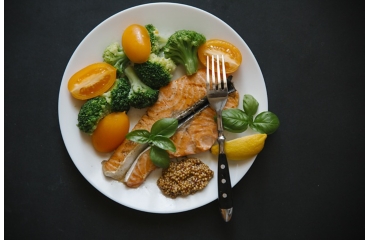Gluten-Free Diet: Care Instructions
Overview

To help your symptoms, your doctor has recommended a gluten-free diet. This means not eating foods that have
gluten in them. Gluten is a kind of protein. It's found in wheat, barley, and rye.
If you eat a gluten-free diet, you can help manage your symptoms and prevent long-term problems. You can also
get all the nutrition you need.
Follow-up care is a key part of your treatment and safety. Be sure to make and go to all
appointments, and call your doctor if you are having problems. It's also a good idea to know your test results
and keep a list of the medicines you take.
How can you care for yourself at home?
-
Avoid all foods that contain wheat, rye, and barley. Foods that are often made with these grains include
bread, bagels, pasta, pizza, malted breakfast cereals, and crackers.
-
Carefully read food labels. Look for wheat or wheat products in ice cream and candy. You may also find
them in salad dressing, canned and frozen soups and vegetables, and other processed foods.
-
Avoid all beer products unless the label says they are gluten-free. Beers with and without alcohol have
gluten unless the labels say they are gluten-free. This includes lagers, ales, and stouts.
-
Avoid oats, at least at first. Oats may cause symptoms in some people, perhaps as a result of
contamination with wheat, barley, or rye during processing. But many people who have celiac disease can eat
moderate amounts of oats without having symptoms. Health professionals vary in their long-term
recommendations regarding eating foods with oats. But most agree it is safe to eat oats labeled as
gluten-free.
-
When you eat out, look for restaurants that serve gluten-free food. You can also ask if the chef is
familiar with gluten-free cooking.
-
Look for gluten-free foods. Many food stores offer specially marked gluten-free food. And you can look
online for gluten-free foods and recipes.
-
On a gluten-free eating plan, it's okay to have:
-
Eggs and dairy products. (But some dairy products may make your symptoms worse. Ask your doctor if you
have questions about dairy products. Read ingredient labels carefully. Some processed cheeses contain
gluten.)
-
Flours and foods made with amaranth, arrowroot, beans, buckwheat, corn, cornmeal, flax, millet,
potatoes, gluten-free oat bran, quinoa, rice, sorghum, soybeans, tapioca, or teff.
-
Fresh, frozen, or canned meats. Be sure to check the ingredient list on processed meats like hot dogs,
salami, or deli meat. These may have added ingredients that contain gluten.
-
Fresh, frozen, dried, or canned fruits and vegetables, if they do not have thickeners or other
additives that contain gluten.
-
Some alcohol drinks. These include wine, liqueurs, and ciders. They also include liquor like whiskey
and brandy.
When should you call for help?
 Watch closely
for changes in your health, and be sure to contact your doctor if:
Watch closely
for changes in your health, and be sure to contact your doctor if:
Current as of: September 20, 2023
Content Version: 14.0
Care instructions adapted under license by your
healthcare professional. If you have questions about a medical condition or this instruction, always ask
your healthcare professional. Healthwise, Incorporated disclaims any warranty or liability for your use of
this information.